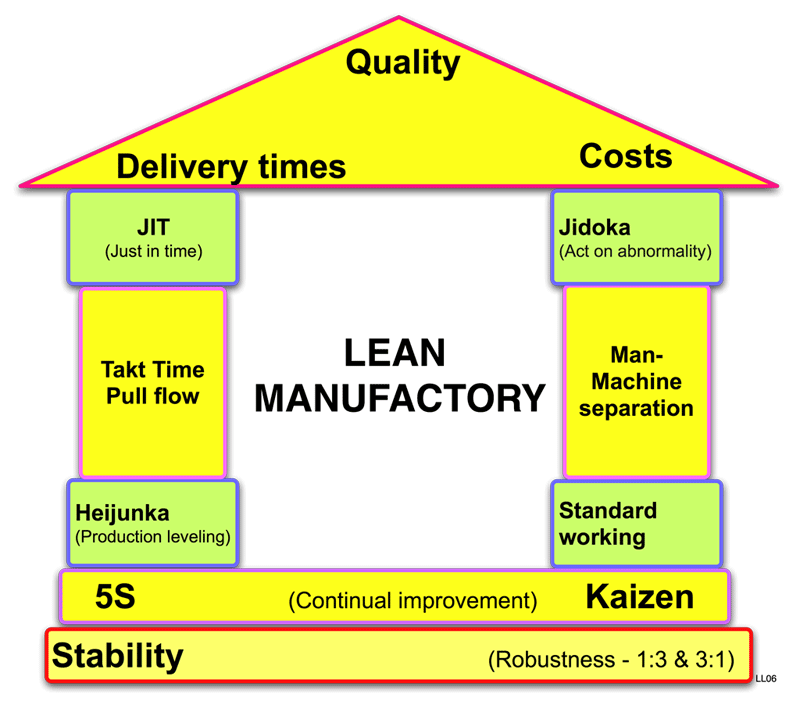Several articles about quality recently appeared in the Wall Street Journal. One was about Toyota because it consistently ranks on top for automobile quality.
Another was about Ford Motor Co. and the headline said:
Job One: Ford Has a Big Problem Beyond the Tire Mess: Making Quality Cars. No. 2 Auto Maker Scrambles To Overhaul Its Factories on the Japanese Model.1
That's pretty strong stuff that impacts--or infects--all quality professionals. So I interviewed Norman Bodek, sometimes called the father of lean, on why lean is the next big thing all quality professionals must know.
You might not have heard of Bodek, founder and CEO of Productivity Press. When Taiichi Ohno and Shigeo Shingo of Toyota invented lean--also called just-in-time (JIT)--Bodek brought it to the United States, then translated, popularized and devised many of the quality tools, techniques and technologies American industry eventually embraced to pull us out of our 1980s productivity morass.
As our economy softens today, it seems quality is again in crisis. But crisis is the mother of invention and creativity, and Bodek has some of the answers.
Q: I've said a lot of nice things about a person I've known through reputation but not face to face. Are they true?
A: Partially. I didn't invent lean. Toyota did. Think of me like Columbus. He didn't create America. He discovered it for Europe. I didn't create lean. I saw the critical productivity mess we were in. I brought over and popularized JIT, total process management, quality function deployment, hoshin kanri [target means deployment] and other productivity tools.
Q: So what's "lean"?
A: Lean means an organization is operating at its most efficient and effective level and eliminating virtually all nonvalue-adding activities and waste.
Q: Why are we seeing so many articles about lean?
A: A rising economic tide floats all boats, including the marginally efficient, hiding inefficiencies and waste. But a lean company is best positioned to be successful during an economic slowdown. In these times, successful companies are those that can operate with the highest quality at the lowest cost, eliminating all waste.
Q: What does waste mean to you?
A: Most companies have 10 types of waste:
1. Excess inventory.
2. Unnecessary motion.
3. Unnecessary transportation or moving of things.
4. Quality, cost and schedule variances.
5. Waiting time or delays (people or material storage).
6. Production that's ahead or behind schedule.
7. Setup time inefficiencies.
8. Inspection inefficiencies.
9. Excess costs, including too much overhead.
10. Lack of creativity--underutilization of talents.
Q: Who are the lean companies?
A: Only about 2% of U.S. companies are lean. Dell can deliver individualized computers within one week. Toyota's U.S. plants produce the automobiles with the best quality and fastest inventory turns. One super efficient Dana Corp. plant ships automobile chassis 16 times a day on a JIT basis.
Q: Tell me about the book you just completed on the lack of creativity and how to better utilize employee talent.
A: Bunji Tozawa and I wrote the Idea Generator--Quick and Easy Kaizen.2 The basic theme is that people work best when they are involved, empowered and engaged through implementing their own creative ideas and sharing them with others. People want to be engaged, excel, do a quality job, be creative and do work that matters. The organizational challenge is to stimulate and capture this energy.
Q: Any closing words of wisdom?
A: We have a new productivity challenge--people engagement and lean practices. If we want to be truly competitive, every employee must be fully participating in unending continuous improvement. We must stop wasting people's brainpower and their will to do good.
So what do Bodek's answers mean for quality careers. In a lean organization, quality managers must widen their knowledge and career base to focus on all nonvalue-adding activities and waste. For example, they should feel comfortable with product development issues. They should also embrace ISO 9000:2000 as a lean standard, with the focus on process and customer satisfaction, not on heavy documentation.
You simply can't provide superior customer service unless you involve all employees in creative problem solving. Empower people by implementing their ideas to serve their customers.
REFERENCES
1. Norihiko Shirouzu, "Job One: Ford Has Big Problem Beyond the Tire Mess: Making Quality Cars," Wall Street Journal, May 15, 2001, p. 1.
2. Norman Bodek and Bunji Tozawa, Idea Generator--Quick and Easy Kaizen (Vancouver, WA: PCSPRESS, 2001).
GREG HUTCHINS is principal of Working It LLC and Quality Plus Engineering, a project and process management firm in Portland, OR. He is author of the Standard Manual of Quality Auditing ( Prentice Hall) and several ISO 9000 books (John Wiley and Sons). Hutchins is a member of ASQ.

No comments:
Post a Comment